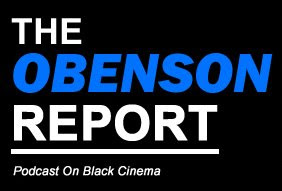
SUNDANCE 2009 - INTERVIEW - Wendell B Harris JR

Just stumbled upon this revealing article on Chameleon Street writer/director/star, Wendell B. Harris, that aptly begins with the question many have asked over the past decade or so, Whatever happened to Wendell B. Harris Jr.?
I was glad to see Chameleon Street finally get the DVD treatment last year, and it now sits comfortably in my DVD stash, chock-full of appealing extra features.
Apparently, as the article states, Harris has returned to the Sundance Film Festival this year — the site of his 1990 dramatic Grand Jury Prize win for Chameleon Street - not with a new film, but with Chameleon Street, which screens alongside Steven Soderbergh's 1989 debut, Sex, Lies, and Videotape in the festival’s From the Collection sidebar program.
One can only hope that, what appears to be a renewed interest in both Harris and his premiere work, will eventually lead to an interest in seeing, and thus financing and producing those projects of his that don't yet exist.
Here's some of the article:
Whatever happened to Wendell B. Harris Jr.? It’s a question that might be asked with greater frequency if only more people had heard of the 1990 winner of the Sundance Film Festival’s dramatic Grand Jury Prize. Indeed, of all the post-Sundance disappearing acts — and there have been many — Harris’ may be the most intriguing, in large part because his debut (and, to date, only) feature film, Chameleon Street, is among the best and least known prize-winners in the festival’s 25-year history.The rest is HERE, so, go read it!
Arriving just one year after Steven Soderbergh’s Sex, Lies, and Videotape (see related stories) turned the heretofore triple-A Sundance into a major-league ball club, Chameleon Street was one of a crop of 1990 competition titles that heightened the excitement then building around the American independent-film movement. Also in the running that year were Charles Burnett’s To Sleep With Anger, the first films of iconic indie auteurs Whit Stillman (Metropolitan) and Hal Hartley (The Unbelievable Truth), and eventual Audience Award winner Longtime Companion. But the jury, which included Soderbergh, Kathryn Bigelow and film critic Armond White among its members, reserved its highest honor for Harris’ ferociously original, mordantly funny take on the life of African-American con artist William Douglas Street, whose impersonations included a lawyer, a Time magazine reporter and a gynecological surgeon (performing three-dozen successful hysterectomies). Adding to the powerful impression made by the film was the fact that its charismatic, skin-shedding protagonist was played by none other than Harris himself.
For most of the two decades that followed, however, news of Harris was so scarce that one might have assumed the triple-threat writer-director-actor to be but the latest in Douglas Street’s series of chameleonic guises. He appeared only twice more as an actor — in Soderbergh’s Out of Sight (1998) as the FBI agent who smells something fishy in Jennifer Lopez’s story, and as a college professor in the 2000 Tom Green comedy Road Trip. Meanwhile, unlike many of his Sundance contemporaries — some of whom continued to trudge forth in the indie trenches, some of whom graduated to Hollywood features or segued into television — Harris amassed no additional writing or directing credits. As for Chameleon Street, it grossed just over $200,000 during a small 1991 theatrical release by the Maine-based distributor Northern Arts Entertainment (after the film’s sales agent botched a prospective meeting with Harvey Weinstein) and, like its maker, soon faded from the scene. Until its belated DVD release in 2007, the film was available only on an out-of-print VHS edition.


0 comments:
Post a Comment